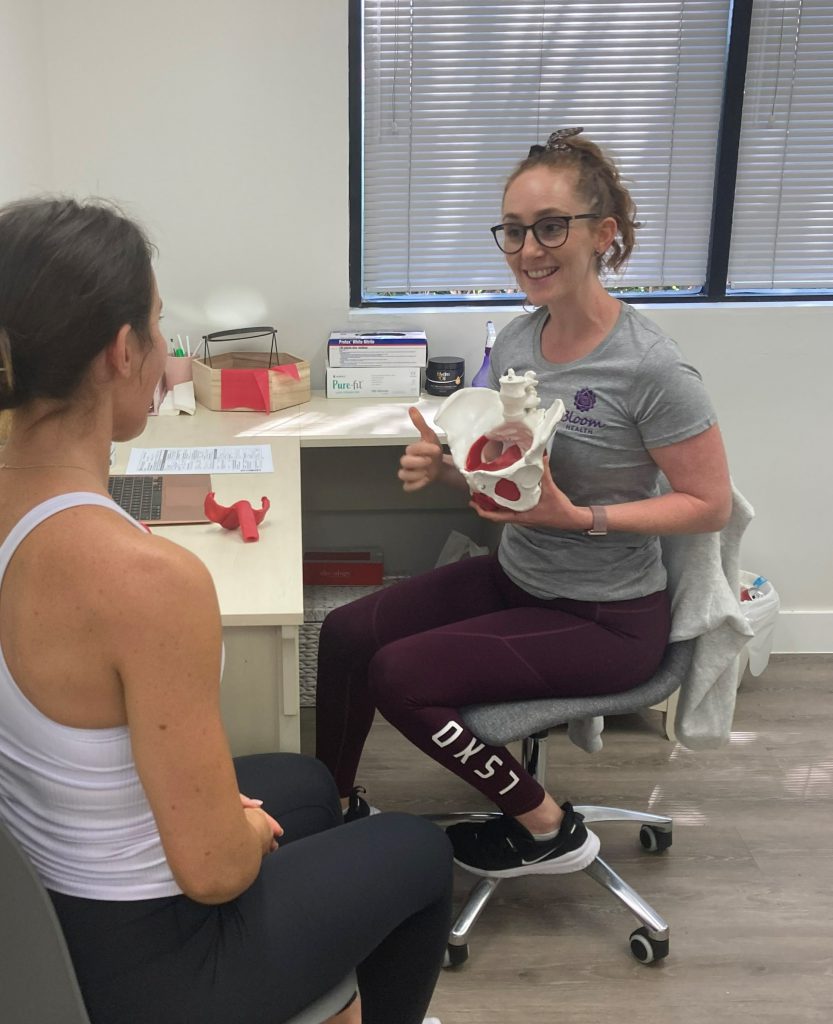
Pelvic Floor Physiotherapy
Pelvic floor physiotherapy for common women’s health conditions such as incontinence, prolapse, pelvic floor muscle dysfunction
Pelvic floor muscles may be weakened, overactive or have reduced activation
Treatment may include exercise based rehabilitation, pessary or dilator fitting and biofeedback techniques
Physiotherapy for pregnancy
Physiotherapy support during all stages of pregnancy including
- Safe exercise advice and programs
- Preparing your pelvic floor for childbirth
- Incontinence
- Pelvic pain and dysfunction
- Low back pain
- Prescription of supportive devices such as abdominal supports, sacroiliac joint braces and recovery supports
- Preparing your body for optimal birth and postpartum recovery
- Reduce likelihood of common post partum conditions such as abdominal separation, incontinence, prolapse, lower back pain, pelvic or sacroiliac dysfunction
Postnatal Physiotherapy
6 week postnatal check up
- Pelvic floor assessment
- Safe and progressive exercise programs
- Abdominal muscle separation
- Incontinence
- Pelvic pain and dysfunction
- Low back pain or postural pain
- Wrist pain “mummy wrists”
- Recovery following birth
Mums’n’Bubs Pilates classes to support safe return to physical activity
Oncology Rehabilitation
Rehabilitation following gynaecological or breast surgery
Rehabilitation post radiotherapy and chemotherapy
Lymphoedema management
Supportive device fittings
